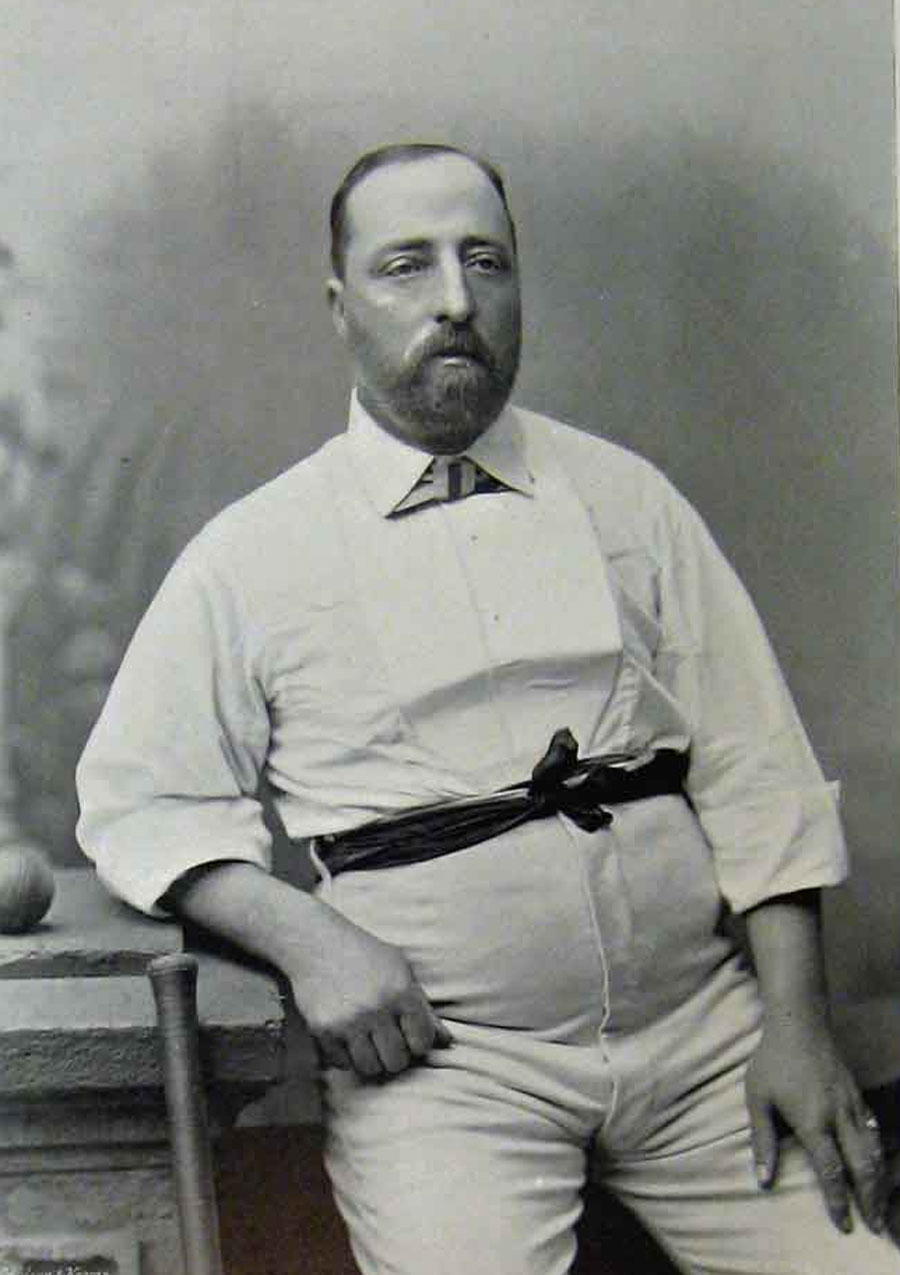Nottinghamshire's general strike
When Nottinghamshire were crippled by a mass walkout
Martin Williamson
03-Jun-2005
|
|

|
The main cause of complaint usually stemmed from the disparity between amateur and professional. In theory, the professionals were paid a wage while the amateurs, the so-called gentlemen, played for fun and expenses. Additionally, the gentlemen were treated with far more respect, afforded separate changing and dining facilities.
In reality, the lines of demarcation were far more blurred. The expenses claimed by a few amateurs was far in excess of the match fees paid to the professionals, and the ultimate shamateurs were probably the Grace family. WG, though treated with the respect of an amateur, to all intents earned his living from cricket, and his income from the game was massive.
Disgruntlement sometimes spilled over, and one of the most public falling-outs came at Nottinghamshire, at the time the strongest county in the country, in 1881.
The seeds of unrest were sewed the previous summer when the Australians toured. While nominally regarded as gentlemen, all the Australians made considerable money from the tour, usually demanding and getting a share of the gate which they then split. Alfred Shaw, the leading Nottinghamshire bowler, saw the business opportunity, and arranged a game at Bradford between the tourists and an XI raised by him at the end of the trip - in those days tours were privately organised and not administered by cricket boards.
By all accounts, Shaw cleaned up, and that match was immediately followed by a hastily-arranged fixture against Nottinghamshire. Shaw told Captain Holden, the county secretary, that he and six others would only play at Trent Bridge for a minimum of £20 each. Holden reluctantly agreed, but privately fumed.
That autumn, Shaw hatched another money-making plan, arranging an early-season game between Nottinghamshire and Yorkshire. Holden found out and told him that he did not have the authority to do so, and at the same time wrote to all the county's professionals asking them to agree to a binding contract under which they would be available for all official Nottinghamshire matches.
Shaw, Arthur Shrewsbury and five others - William Barnes, Wilfred Flowers, Fred Morley, William Scotton and John Selby - refused to sign, and countered with their own three-point proposal. They asked that, firstly, the unofficial Yorkshire match be allowed to proceed, secondly that every player should be guaranteed a benefit after ten years' service (it was common practice but very much at the behest of the county committee) and thirdly that all seven be engaged for all matches in the 1881 season. The Yorkshire match was incidental - at the heart of their claim was greater security of employment.
The county were in a difficult position, and faced with demands which threatened the semi-feudal structure of county cricket. "It involved a distinct and material alteration in the relations between paid cricketers and their employers which vitally affected the interests of every club of any importance," wrote James Lillywhite in his famous Annual.
The rebels played in the first game of the season, against Sussex at the end of May, but within days the committee rejected the first two demands, and in a divide-and-conquer approach, said that they would offer five of the rebels a place in the XI (the exceptions being Flowers and Scotton). Such was the distrust between the rebels and Holden that they refused to agree to any talks if he attended, while the county insisted that their secretary be there.
Stalemate ensued, and for much of the summer Nottinghamshire fielded a virtual second XI. In early July, the unofficial match against Yorkshire took place and was reportedly another financial success for Shaw.
The conclusion of that game removed one of the three conditions, and Holden then asked the MCC to intervene, which they did to good effect and the rebels agreed to return, ironically for the game against Yorkshire. But once again Holden re-ignited the dispute by leaving out Shrewsbury and Flowers, and the seven withdrew their labour.
Another month passed, and Holden changed tactics, approaching Flowers, perceived as the rebel with the least resolve. Flowers agreed to return, and in his first match back, against Gloucestershire at the beginning of August, took 8 for 23 (and 12 in the game) as Nottinghamshire won by 10 wickets. Selby and Barnes returned for the next game a week later, and they were immediately followed by Scotton and Morley. But it was too late for Nottinghamshire's Championship aspirations.
The two protagonists, Shaw and Shrewsbury, remained on the outside for the remainder of the summer, but used their time to organise a lucrative eight-month tour of Australia, New Zealand and America the following winter, from which they each earned £1500.
On their return to England, in mid May 1882, the pair wrote to the Nottinghamshire committee to apologise for their actions, and both were welcomed back into the side. It was in their mutual interests to bury the hatchet.
It wasn't nearly the last such dispute, but it was one of the most drawn out.
Is there an incident from the past you would like to know more about? E-mail us with your comments and suggestions.
Bibliography
The Cricketer Various
Wisden Cricketers' Almanack 1882
The Cricketer Various
Wisden Cricketers' Almanack 1882
Martin Williamson is managing editor of Cricinfo